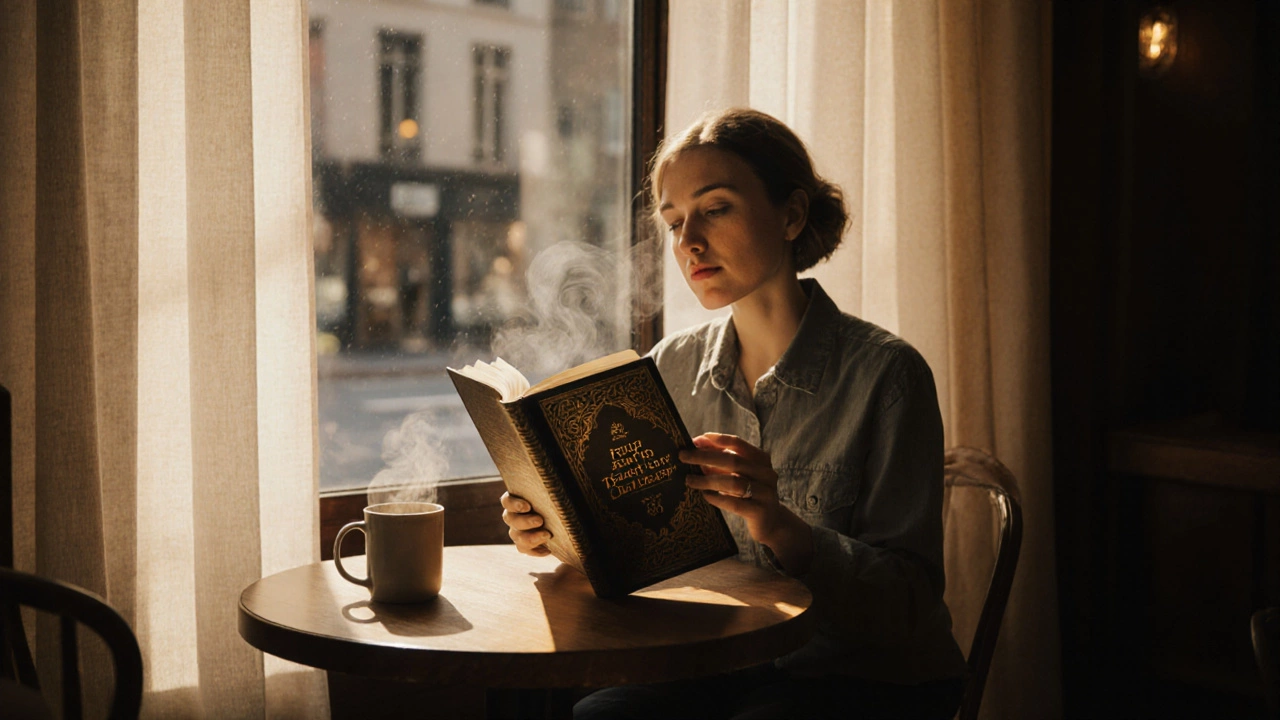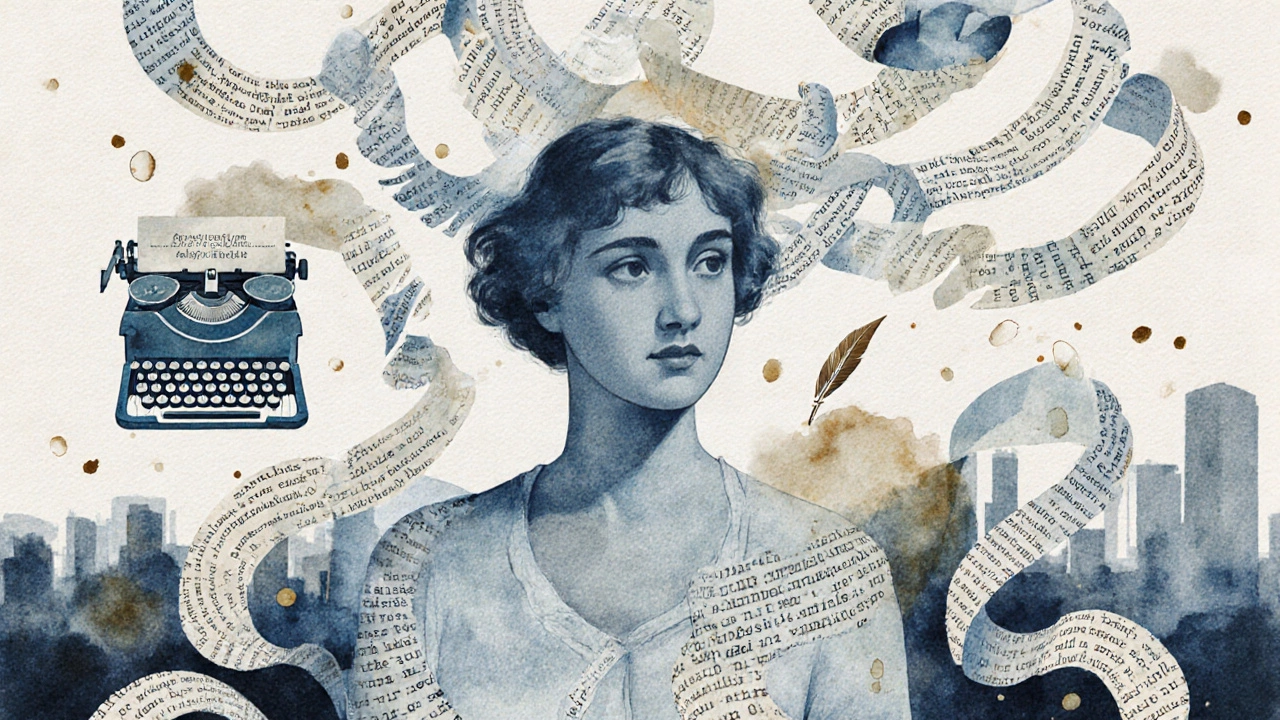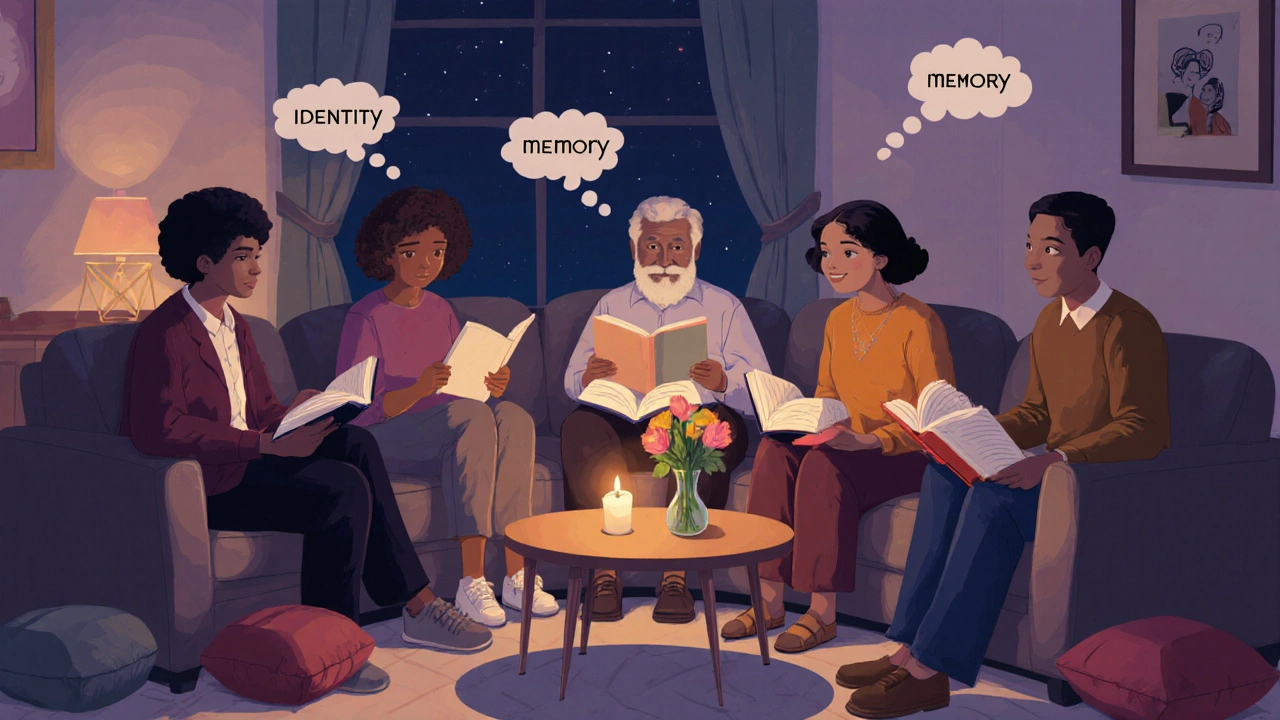What is Literary Fiction? Definition, Traits, and How It Differs from Genre Fiction
 Oct, 16 2025
Oct, 16 2025
Literary Fiction Analyzer
Analyze your book by selecting characteristics that best describe it. The tool will determine which fiction category it aligns with most closely based on the article's framework.
Ever picked up a book that felt more like a conversation with the author than a simple story? That’s the vibe most readers chase when they talk about literary fiction. It’s not just a label on a spine; it’s a promise of depth, nuance, and a little bit of challenge.
Quick Takeaways
- Literary fiction prioritises character, theme, and language over fast‑paced plot.
- It often experiments with style and structure, drawing from movements like modernism.
- Compared to genre fiction, the story’s "why" matters more than the "what".
- Key authors include James Joyce, Virginia Woolf, and contemporary voices like Haruki Murakami.
- Reading it can sharpen empathy, critical thinking, and an appreciation for literary craft.
So, what exactly does "literary fiction" mean? Let’s break it down with the kind of honesty you’d find in a good book club discussion.
Defining Literary Fiction
Literary fiction is a category of prose that emphasizes artistic merit, thematic depth, and stylistic innovation over plot‑driven entertainment. It often explores complex human experiences, asks philosophical questions, and plays with language to create a lasting emotional or intellectual impact. Unlike a thriller that wants you glued to the next page for the next twist, literary fiction invites you to linger, to savor the sentence, and to contemplate the subtext.
Core Characteristics
While every book is unique, literary fiction tends to share a handful of recognizable traits:
- Character focus: Protagonists are usually richly drawn, with interior lives that drive the narrative.
- Thematic weight: Themes such as identity, memory, mortality, or social critique are woven into the fabric of the story.
- Language play: Authors experiment with syntax, rhythm, and metaphor, often making the prose itself feel like art.
- Ambiguity: Endings may be open‑ended, leaving space for interpretation rather than tidy resolution.
- Structural experimentation: Non‑linear timelines, multiple perspectives, or fragmented chapters are common.
These elements work together to turn reading into an experience that feels more like an intellectual conversation than a simple pastime.

Literary Fiction vs. Genre Fiction
One of the biggest confusions is whether literary fiction and genre fiction are mutually exclusive. The short answer: they’re not. A novel can be both literary and a mystery, for example. However, the dominant focus often determines how a book is marketed.
| Aspect | Literary Fiction | Genre Fiction |
|---|---|---|
| Primary Goal | Explore ideas, character, style | Deliver a specific plot formula |
| Pacing | Often measured, reflective | Fast‑paced, action‑oriented |
| Structure | Experimental, non‑linear possible | Traditional arcs (setup → conflict → resolution) |
| Reader Expectation | Engage with language & subtext | Enjoy clear, genre‑specific tropes |
| Marketing | Often reviewed in literary journals | Promoted via genre‑specific channels |
Notice how the focus shifts. In literary fiction, the "why" behind a character's action often outweighs the "what" of the event itself.
Historical Roots and Movements
Literary fiction didn’t appear out of thin air. Its modern shape owes a lot to early 20th‑century movements, especially Modernism. Writers like James Joyce and Virginia Woolf shattered conventional narrative techniques, opting for stream‑of‑consciousness and fragmented structures to mirror the complexities of modern life.
Later, Postmodernism tossed in irony, metafiction, and playful self‑reference. Think of a novel that acknowledges it's a novel-this is where you often see the line between literary and genre blur. Both movements expanded the palette for what prose could do, shaping today’s literary landscape.
Authors and Works That Define the Genre
When you want a taste of literary fiction, start with the classics that set the benchmark, then move to contemporary voices that keep it fresh.
- James Joyce - Ulysses (a marathon of interior monologue).
- Virginia Woolf - Mrs. Dalloway (a day in the mind of a woman navigating post‑war England).
- Haruki Murakami - Kafka on the Shore (magical realism meets existential questioning).
- F. Scott Fitzgerald - The Great Gatsby (a critique of the American Dream wrapped in lyrical prose).
- Contemporary: Zadie Smith - White Teeth (multicultural London explored with wit and depth).
Publishers like Penguin Classics often keep these titles in print, signaling their lasting literary value.

How to Approach Reading Literary Fiction
Feeling a little intimidated? Here are some practical tips to get the most out of a literary novel:
- Take your time. Unlike a thriller, you don’t need to race to the end. Pause after a paragraph that resonated.
- Focus on language. Notice metaphor, rhythm, and word choice. Ask yourself why the author chose a particular phrase.
- Follow the characters' inner lives. What are they thinking? How does that shape the plot?
- Embrace ambiguity. If an ending feels unresolved, that’s often intentional. Reflect on multiple possible meanings.
- Discuss. Book clubs or online forums bring fresh perspectives that can reveal layers you missed.
Remember, the goal isn’t to “solve” the story but to let it linger in your thoughts.
Common Misconceptions
Let’s clear up a few myths that keep people away from literary fiction:
- It’s only for elites. While academia discusses it, anyone can enjoy the emotional richness it offers.
- It’s always boring. Yes, some works are dense, but many are vivid, funny, and deeply moving.
- It never has a plot. Plot exists; it’s just not the primary engine. Think of it as a vehicle for exploring ideas.
Frequently Asked Questions
Is literary fiction the same as classic literature?
Not exactly. Classic literature refers to works that have stood the test of time, often from earlier periods. Literary fiction can be contemporary and still prioritize artistic merit and thematic depth.
Can a book be both literary and genre fiction?
Absolutely. Many novels blend literary style with genre conventions-think of Margaret Atwood’s Alias Grace, which mixes historical crime with literary prose.
How do I choose a good literary fiction novel as a beginner?
Start with accessible authors like Kazuo Ishiguro’s Never Let Me Go or Sally Rooney’s Normal People. Look for books praised for strong characters and clear themes.
Why does literary fiction often use ambiguous endings?
Ambiguity invites readers to keep thinking after the final page, turning the book into a personal experience rather than a closed story.
Do literary fiction books sell as well as genre novels?
Sales are typically lower than blockbuster genre titles, but literary works often enjoy long‑term sales, critical acclaim, and award recognition, which can sustain them for years.
Whether you’re a seasoned reader or just curious, literary fiction opens a window onto the human condition that few other genres can match. Grab a copy, take your time, and let the pages speak to you.